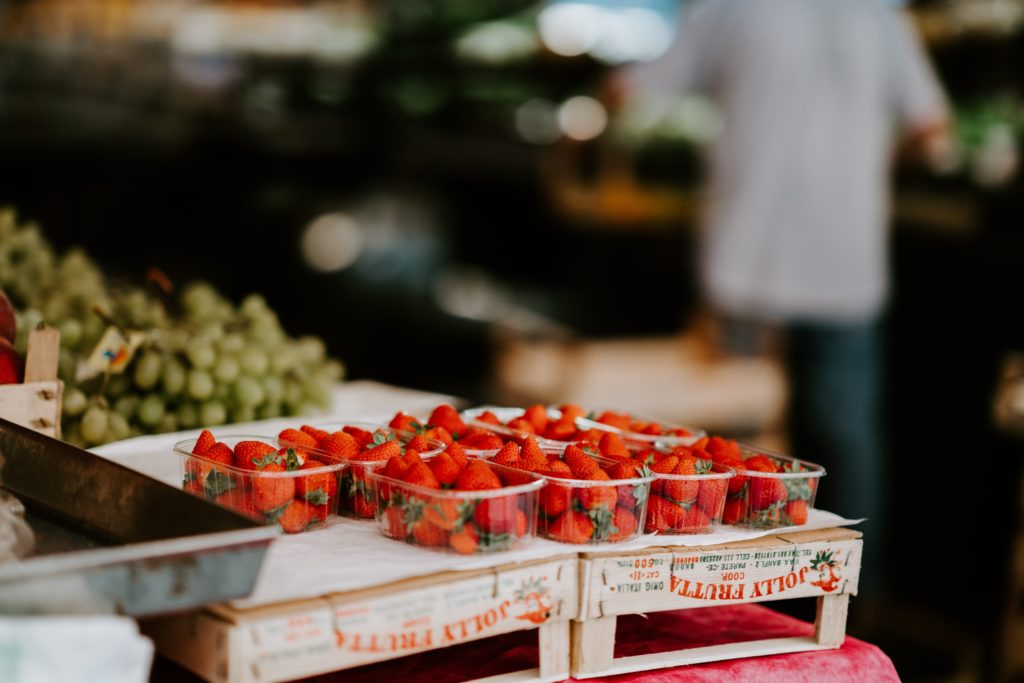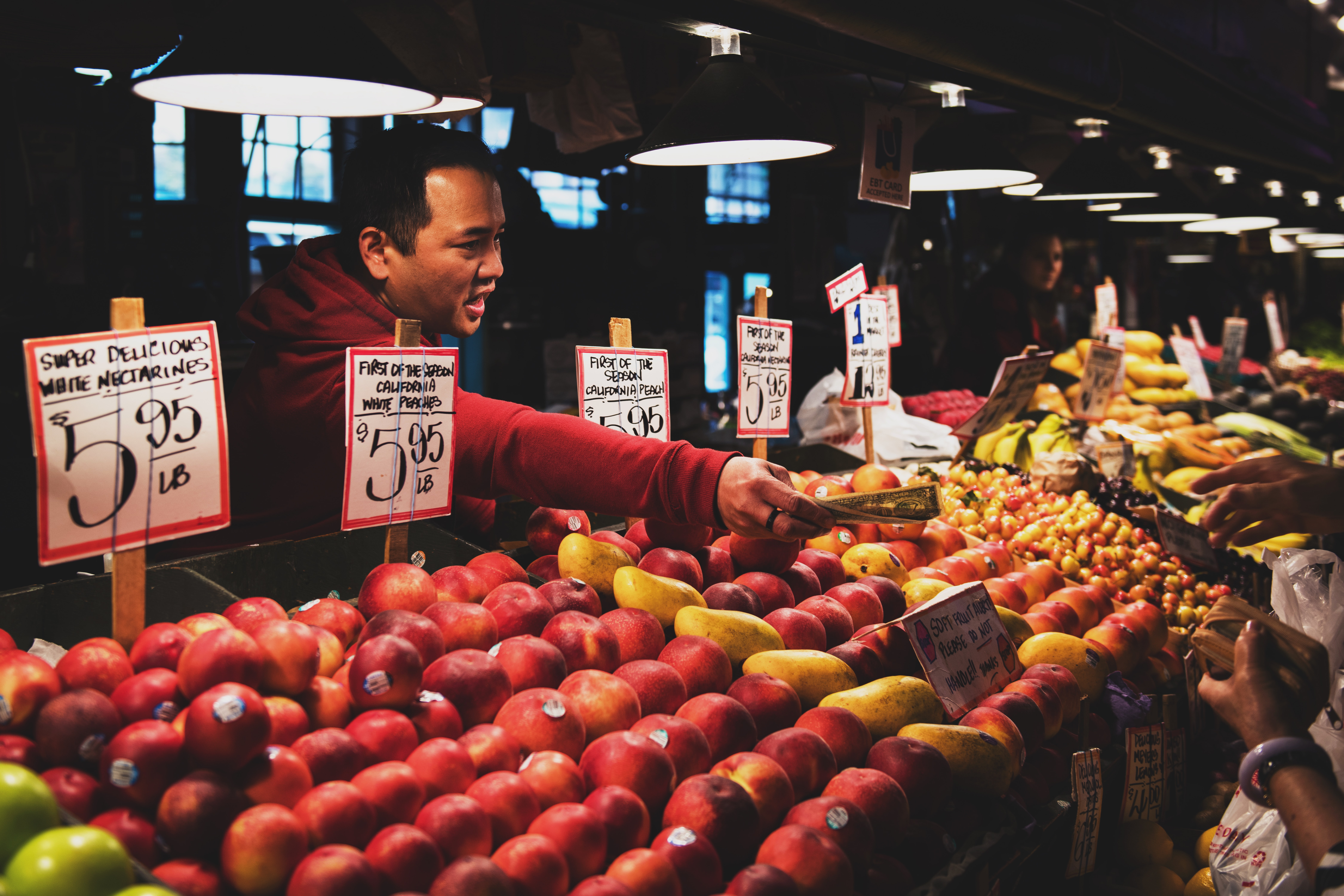Why local food is healthy food

Before I graduated high school, I lived in a classic, small New England town. I went to school with six other towns, knew most people in my grade, walked almost a mile to the bus stop, and loved the quintessential downtown. We weren’t far from at least three supermarkets, and there was even a weekly farmers market when there wasn’t snow on the ground. Yet, we rarely shopped local until we moved farther up north, right across the street from a farm.
Now, we do our best to support our neighbors. We see the benefits of eating local all the time, and you can, too!
The Benefits of Supporting Local Farms
It’s healthier and more nutritious
It’s good for you! According to Virtua Health, it’s healthier to eat fresher food, and when you buy local, that’s as fresh as you can get. This is because produce starts to lose nutrients about a day after being picked. Local food also means it’s picked when it’s the ripest, when it has the most nutrients. Produce from the grocery store is also ripe, but it’s picked before its ripe, so the nutrient level isn’t the same.
No preservatives
Some store produce is also treated with preservatives like gas or wax, which can also decrease nutritional value. In comparison, even if local farmers aren’t organic, they at least aren’t using preservatives.

Lower carbon emissions
Eating local food is good for the environment, too. Local and regional produced food produce up to 17 times less CO2 than non-local, because it doesn’t travel nearly as far for distribution. So, by sourcing food locally, you can make a healthier choice and shrink your carbon footprint all in one go!
Boost your local economy
Eating local food can help keep the economy steady; no matter what you’re buying, if you’re buying local, the money stays in your community. A study even found that when you buy local produce, twice the amount of money stays in the community than when you buy from supermarkets. When the money stays in the community, the money keeps moving around, which in turn keeps the economy healthy. Another study showed that more jobs are created by farms who market directly to their customers rather than wholesale.

Less pesticides = healthy soil
Local food usually uses less pesticides, too, and which can help rebuild crop and insect populations by promoting healthier soil.
Put more nutrients back into the ecosystem
Local farms also keep nutrient recycling going locally; large-scale production farms can hurt that cycle, which is important to an entire ecosystem. Without the right soil nutrients, plants won’t grow. When plants can’t grow, some animals don’t have as much to eat, and so-on.
Improve biodiversity
Additionally, small farms usually grow a larger variety of plants: think different types of produce, carrots, peaches, apples, and a wonder of other fruits and vegetables. This helps with biodiversity in the area and the health of the environment. For example, we get a larger variety of nutrients, and so do animals surrounding us.

How to Support Local Growers
Join a CSA!
CSA stands for Community Supported Agriculture and they’re programs local farms use that work like a subscription or gift card. For the gift card model, there’s additional perk: most farms add a percentage of what you pay to your balance. For example, if you put in $500, you might get $550 on your CSA card, though it will vary farm to farm. Some farms also do it in the subscription method, where each week you’ll get a bag or box of goodies. You can find a local CSA here.
See if your supermarket carries local products.
Check with supermarkets to see if they carry local produce or other products such as honey or maple syrup. For the last two summers, I worked at that produce farm across the street from my house and my main job was going through and packing tomatoes, cucumbers, peppers, and countless other produce for wholesale to supermarkets around us. While maybe not as common as a farmers market, you may be surprised to be able to support locals without an additional drive.
Grab your local farmer’s “seconds.”
Check with farm stands to see if they have “seconds,” as in produce they can’t wholesale or send out at full price. Often, a “second” had a little bruising, a small hole from another stem, or insect damage, but were still perfectly fine to eat if you cut that bit off. Also, keep your eye out for end-of-season sales or pick-your-own days. Often, those days are cheaper and towards the end of the season, even pre-picked produce might be at that price. While the selection is limited to apples, peaches, blueberries, strawberries, or other in-season produce, it’s still worth it.
Buy or pick in bulk to get you through the cold months.
Not only will the additional revenue help out the farm, but you’ll have fresher produce all year long. Blueberries, strawberries, and other fruits freeze well for baking or smoothies, and you can use other vegetables to make stews, sauces, or bulk meals that freeze well. And hey, it’s always good to have something homemade in the freezer for those inevitable days we don’t want to cook.
Buy local products, too.
Supporting local growers doesn’t always mean produce: many local growers also do honey or maple syrup. Then there’s local bakers, local butchers, local ice cream parlors who wholesale pints, and a variety of other locals selling their products to farm stands and supermarkets.
Volunteer!
Some farms look for volunteers or temporary workers certain times of the year. At the farm I worked at, we would have teenagers come and pick berries in the mornings for sale in the stand, even when you-pick was open. Other farms might need help planting seeds at the start of the season. Check out your local farm website or contact them for information.
Overall, get involved!
Shop from local farms, at supermarkets that stock local goods, and eat at restaurants that support local growers. You can also support organizations aimed at helping local farmers grow, learn, and network with other farms, such as MESA. You can help your neighbors help your community, which can flourish with the support it needs.


Leave a Reply